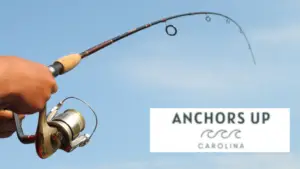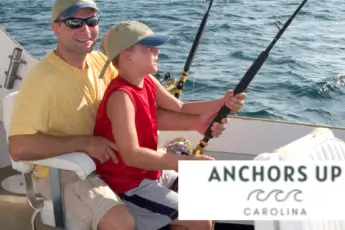There are a multitude of reasons why fishing rods break. As an avid angler I have broken rods on numerous occasions. I’ll admit I always find it frustrating determining a rod is broken when heading out fishing or stowing my gear. It is important to know the primary causes of broken fishing rods so that it can be better avoided. If you’re wondering why did my fishing rod break, here are the top 5 reasons explained.
Why It Is Important To Avoid Breaking Fishing Rods
Without question, you should take every necessary measure to avoid breaking fishing rods. Here are the challenges of dealing with broken fishing rods.
They Cost Money To Repair
One of the biggest concerns with broken fishing rods is the cost to make the repair. Unfortunately, rod repair is expensive especially when it comes to offshore trolling gear.
I have broken a multitude of rods and can tell you that the repair costs add up quickly. In order to keep money in your pocket, protect your rods from breaks.
It Is Inconvenient
Without a doubt, you don’t want to be ready to head out for a fishing trip only to find that your rod is broken.
First, you will not be able to fish with that piece of equipment on that outing. Secondly, you’ll be forced to leave it at the shop for repair, which may overlap with another fishing trip. Avoid the inconvenience by protecting your rods.
Why Did My Fishing Rod Break: 5 Reasons
No question about it, there are more than 5 reasons why fishing rods break. However, I will focus on the top 5 reasons that fishing rods end up in the repair shop.
Smashed In The Door Of A Vehicle
One of the most common ways that rods snap in half is a result of them being smashed in the door of a vehicle.
In some cases, anglers place equipment inside of the vehicle rather than in the bed of a truck. As you know, rods are lengthy and tend to come close to the doors if they are stowed from the front passenger seat to the rear seat on the drivers side. Often, the unsuspecting angler crushes the rod in the door jam.
Stepped On
I’ll admit, I have stepped on my rods and bent the eyes. However, I have not gone as far as snapping a fishing rod or breaking a guide eye.
It is imperative to never stow fishing rods on the ground. Rods kept on the ground are targets for clumsy feet. With that said, stow the rods in rod holders or lean them against a tall object to they are never stepped on.
Over Bending The Rod
It should be noted that rods are designed with limitations in their ability to bend. Over flexing a rod will cause it to snap in half.
When handling a rod, never bend it to extreme measures. Secondly, when walking with fishing rods, make sure the end does not come in contact with solid objects. A solid object can be the ground or a wall. The combination of the force of your momentum and being wedged against a hard object can rapidly flex the rod, causing it to break.
Connecting Hooks To Eyes
One of my biggest pet peeves is watching anglers connect hooks to guide eyes. Not only does the hook damage the ceramic within the eye, but it also puts the eye at risk of breaking.
Without question, you should utilize the hook keeper more than an eye. Placing a hook on the eye and cranking down the tension on the reel spells disaster.
I get it, you don’t want to allow your hook to dangle loosely but reeling down tight on eyes will break the fishing rod eyes.
Improper Storage Methods
No question about it, I am particular about how I store my fishing rods. Unfortunately, rods that are stored improperly are prone to breaking as a result of foot traffic or moving objects.
Rather than leaning your rods and reels against the wall in a garage or in the house, utilize roof space. I always hang my rods from the ceiling in the garage to keep them up and out of the way.
Avoid Breaking Your Fishing Rods
These are the 5 most common reasons that fishing rods break. I have witnessed all of the above occur, but they are avoidable. I recommend considering the 5 primary causes so you can prevent needing to shell out money for repair. Furthermore, you won’t be left without your favorite rod and reel during your next fishing trip.







